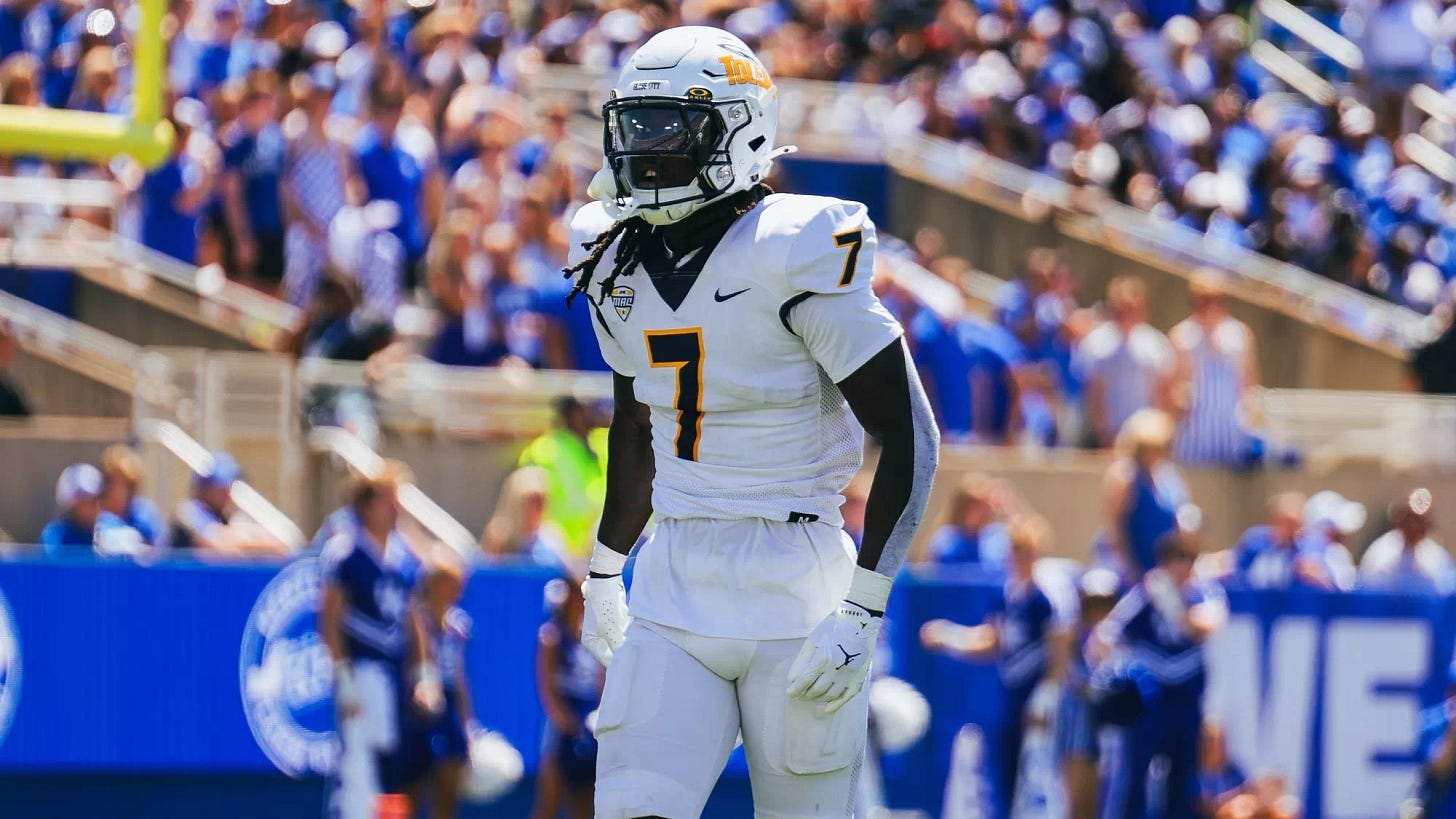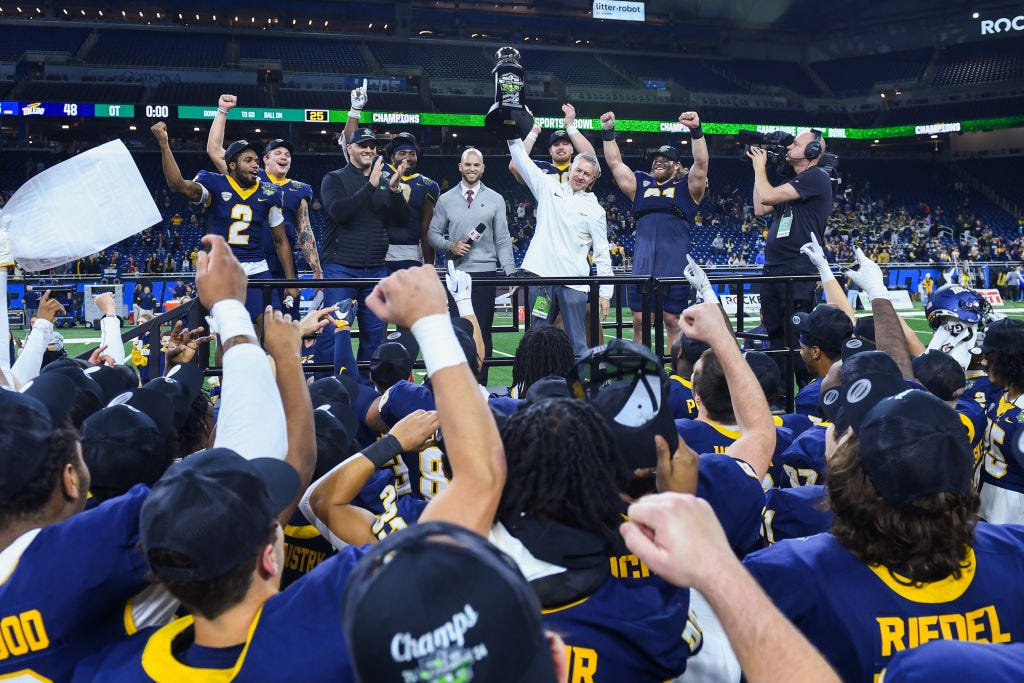Toledo is building a NFL secondary factory. Emmanuel McNeil-Warren is next up.
A Group of Five school is punching well above its weight when it comes to sending defensive backs into the NFL. How do they do it? And why is Emmanuel McNeil-Warren next?
Ross Watson can still remember it as vividly as if it happened yesterday. He was walking to the meeting room, preparing to meet with his safeties, the position he has coached at Toledo for 10 seasons.
He heard a noise and took a peek around the corner. Inside the room, he watched Tycen Anderson grill fellow safety Maxen Hook on defensive calls, assignments, jobs, among various other aspects of the Toledo defense.
Watson, who often tests the mental aptitude of his players in a defense that asks a lot of its safeties, just watched from afar as the culture that was being built in front of his eyes was manifesting. Manifesting into something special. Manifesting a standard set by the defense’s best player and special teams ace.
He told his wife this later, after reflecting on the moment: “Tycen’s changing what’s going on in there.”
“That moment to me, when I saw those two in the room, changed my mind of what was going on,” Watson, who is also Toledo’s co-defensive coordinator, said by phone last month. “This guy is controlling what’s going on. He’s setting the tone for the room, and that keeps filtering through. We’re going through this right now. Our young freshmen right now need to learn what it means to play secondary at Toledo.”
Development at the core
When you think of the best Group of Five programs, Toledo might not be among the first couple of schools named. Programs like Tulane, Boise State, UNLV lately, and even UTSA or Liberty might come to mind.
But consider this: Toledo has a 75-43 record under Jason Candle since he took over the program full-time, has won more than half of his MAC games, and now, in back-to-back years, has produced top-three round draft picks in Quinyon Mitchell (2024 first-rounder) and Darius Alexander. In each of the last four drafts, Toledo had a player drafted.
Toledo had a long drought from 2005 to 2017. No players were drafted despite the success Tim Beckman and Matt Campbell (now at Iowa State) had as head coaches for Toledo. Then Candle took the head coaching job in 2016 after spending seven seasons as an assistant, and things immediately changed. Kareem Hunt, Treyvon Hester, and Michael Roberts were drafted in 2017. Logan Woodside in 2018. Diontae Johnson and Ka’dar Hollman in 2019.
Things changed under Candle in a hurry. He won the MAC in 2017, and six of his players got drafted in his first three years. Part of his recruiting strategy, he says, is having quality high school tape, but also to “find out who the human being is and what the man, the man inside that tape, is.” And at the core of his program’s success, he says, is developing his players and not just winning “the offseason from January to August.”
“I think that development is important. It’s more important than recruiting. You don’t get developmental rankings. You get recruiting rankings,” Candle said. “We’ve had a great track record of development, our strength coaches [Brad Bichey, Christian Klinec, Devan Rogers, and Spencer Davis] are A1 in my opinion.”
“[They’ve] done a great job with our guys, getting the most out of them from the physical side of it,” he said. “We have real, honest conversations with our players here in our building. We tell each other the truth. We don’t sugarcoat anything, and we just try to stay in the fight with them, rather than fighting against them.”





